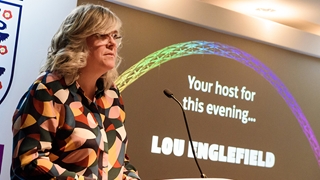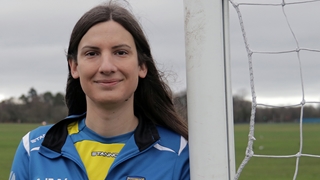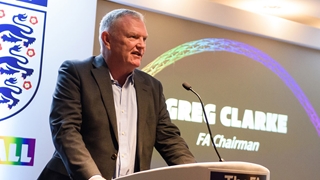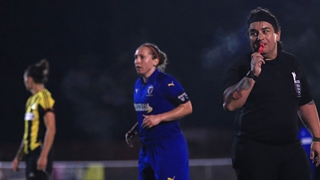
As a 52-year-old cisgender lesbian, I can remember what it was like growing up in women’s sport in the 1980s.
A ‘don’t ask, don’t tell’ culture existed, where the stereotype that all sportswomen were lesbians was rife, and those of us who were lesbians kept quiet about it.
That culture of secrecy and shame was off-putting and I left football and hockey, the team sports I loved, in my teens and didn’t return until my late twenties.
When I did return, I was interested in getting involved, not only on the football pitch, but also in the development of our grassroots club. By this time, it was the mid 90s and I was told by a committee member that it would not be appropriate for me, as a lesbian, to get involved with the junior section of the club for which I played, as parents would be put off.
Fortunately, my relationship with football didn’t end there and in the early noughties, I was approached by one of the dads at our local junior football club to help him set up a girls’ team. I went on to coach grassroots football for over ten years and have since seen some of my players progress into the women’s game.
Although I loved coaching girls’ football, some of those earlier experiences have stayed with me, and there were times when I felt nervous about the attitudes of parents from other clubs in our league, even though there was probably no need to worry whatsoever.
Fast forward to last month. During the Football v Homophobia month of action, we partnered in an event on women’s football. On a panel discussion I heard my colleague Natalie, our campaign lead for Football v Transphobia, who is a grassroots footballer, describe a time when she pulled out of an attempt on goal for fear of transphobia.
The ball was between her and the goalkeeper, and although she judged that she would be able to get to the ball first and get the shot in, she was worried that if the goalkeeper had committed to the save and there had been contact, that Natalie would be targeted as a trans woman. She let the keeper make the save.
I can’t imagine what it is like to have those kinds of thoughts running through your head in an actual game, I found it hard enough to make any kind of strategic decision on the pitch as a player. I do know what it’s like, however, to censor yourself as a coach because of fears of people’s homophobia.
This is why it’s important that we tackle both homophobia and transphobia in football.
We rightly worry that there isn’t currently an 'out' gay male footballer in any of the 92 professional clubs across the English leagues. But did you know that 50 per cent of young trans people in sport aged 16-25 do not feel they can be open about their gender identity in a sports club?
That’s half of all young trans people hiding who they are, just to have fun, keep fit and play the sports they love.
At the same time, we know that people excel in environments where they can be themselves. The professional footballer, Robbie Rogers, who came out as gay and subsequently signed for LA Galaxy has said: “My happiest years as a player are the ones where I could walk through the stadium at the end of games down the tunnel to my partner and son waiting for me at the other end. And my only regret in my eleven-year career are the years I spent in the closet”
Did you know the FA has a policy that enables trans people to play alongside their cisgender team mates and friends? Yet all we seem to see in the media is opinion pieces about how unfair it is for trans people to compete in sport.
It reminds me of being a young lesbian and coming to terms with my sexuality during Section 28, a policy that prohibited local authorities from “promoting homosexuality” (basically treating gay people as equal to straight people).
At that time, lesbians and gay men were vilified in the media, we were seen as unsuitable role models for young people, and we were characterised as predators.
Let’s not revisit history and allow misinformation and stereotypes to get in the way of trans people being able to enjoy the beautiful game in 2020.
March 24 – 31 is the Football v Transphobia Week of Action. It is a time when we can highlight the positive contribution trans people are making to football and show how we can be active allies for the trans community and support their inclusion in the game.
You can find information on our website about how to get involved.









